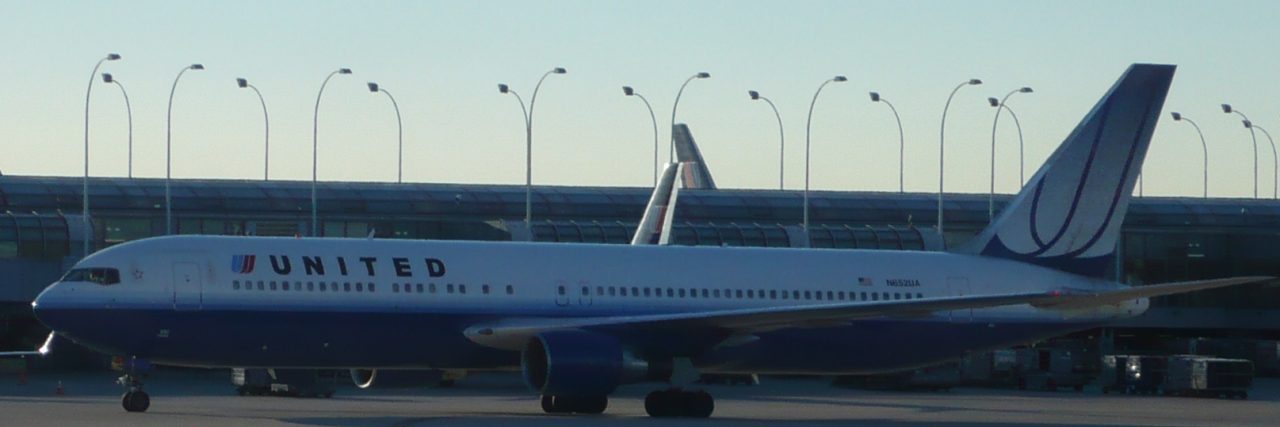Trey Harris, Man With Disability, Prohibited From Bringing Mobility Device on United Flight
Since a passenger was forcibly removed from a United Airlines flight a week ago, several more people have stepped forward with stories of how they were mistreated by the airline, including Trey Harris, a man with a disability who says the airline prohibited from bringing his mobility device on his flight.
Traveling to San Diego for his honeymoon this past March, Harris, who lives with spondylitis – a type of autoimmune spinal arthritis – uses a Segway miniPro and cane to get around. Before traveling, Harris called United Airline’s accessibility desk and the TSA’s disability services desk, both of which confirmed Harris would be able to travel with his Segway.
Harris and his Segway made it through security without any issues, but Harris said he was stopped once he got to his gate. “[T]he agent said I couldn’t carry it on, and I couldn’t gate check it because it ‘wasn’t allowed,’” Harris wrote in a post explaining what happened on Medium. “I asked if they’d seen that notation in my itinerary. They said they had, and it indeed showed my prior call.”
After the agent at the gate refused to let Harris board, Harris called the accessibility desk again, which confirmed he had permission to bring it on the flight. After some back-and-forth with the agent at the gate, the final decision as to whether or not his device could board the plane was left up to the captain.
“I’m then told that the captain has made the decision NOT to allow it, and has ‘final authority,’” Harris writes. “I ask what can I do — gate-check it? No, it’s not being allowed on the plane period, cabin or cargo. Can we book another flight while we argue our case? No — no flight will arrive in time for our ship departure.”
Harris then had to leave his Segway at the gate or risk missing his flight:
The gate agent grumbles that we could’ve done that at the start without all this trouble, and then lets us board — me hobbling on my cane down the jetway. We take off, and my honeymoon starts with me sobbing for an hour, my husband consoling me. I felt humiliated, like all the passengers blamed me for the delay. (One passenger a few rows back was grousing loudly, “entitled idiot thinks he can bring a hoverboard onto an airplane”.) I assumed the Segway — a device that’s been essential to me for much of the last year I’ve had it — is lost.
Without his Segway, Harris was forced to rent a scooter for several hundred dollars for the duration of his honeymoon cruise.
“If you’re told an accommodation will be made, that’s a promise that shouldn’t be reneged on,” Harris told The Mighty. “Folks with disabilities need accommodation, yes, but even more important than accommodation is some control over our lives, and in travel, that means we need to be able to count on the arrangements we make. As people with disabilities, we already have to do much more planning than others when we travel. The airlines have to cooperate and stick to their promises, or flying just becomes an impossible risk.”
Harris said he isn’t looking for any compensation from United but would appreciate an apology.
A United spokesperson told The Mighty:
We sincerely apologize for the inconvenience Mr. Harris experienced and are in the process of reaching out directly. FAA regulations differ depending on the type of lithium battery. Certain Segways that contain lithium ion batteries may not be permitted as carry-on items but may be checked at the ticket counter as a mobility device. We are contacting Mr. Harris to apologize for what occurred.

